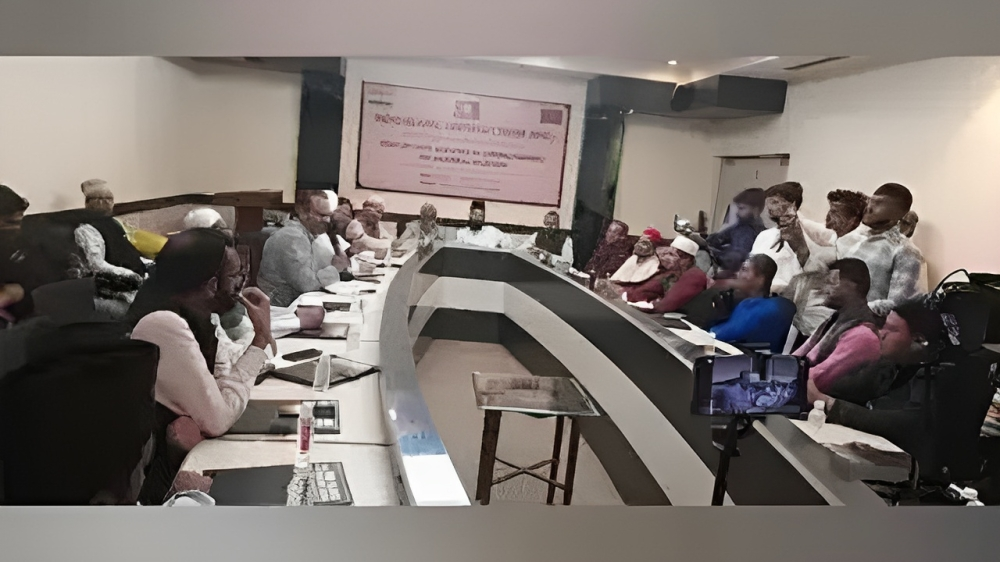Delegates and Islamic scholars from India and Bangladesh convened in the national capital for an Indo-Bangla Conference, where they delved into the issues presented by religious extremism and terrorism from radical groups in neighboring countries. Titled ‘Role of Civil Societies in Strengthening Bilateral Relations,’ the conference, hosted at the Indo-Islamic Heritage Centre, provided a platform for comprehensive discussions.
During the event, Mohammad Abdur Rahim, Joint General Secretary of the Bangladesh Islami Front (BIF), emphasized Sufism’s unwavering dedication to peace and international harmony, denouncing any association of the ideology with terrorism, radicalism, or extremism. Rahim specifically highlighted the disconnect between organizations like Jamaat-e-Islami, ISIS, and Jaish-e-Mohammed and the principles of Islam.
In regard to the spiritual ties between India and Bangladesh, Rahim underlined the shared spiritual heritage, drawing attention to influential scholars like Ashraf Jahangir Semnani, Khwaja Muinuddin Chishti, Ahmed Raza Khan, and Nizamuddin Auliya, whose teachings have fostered a culture of peace and resistance to terrorism in both countries.
Echoing these sentiments, Dr. Hafeezur Rehman, another participant from Bangladesh, emphasized the necessity for a joint effort between New Delhi and Dhaka in combating radicalization. Drawing from historical context, Rehman highlighted the 1971 liberation struggle of Bangladesh, underscoring the role of radical literature authored by Abu al-A’la al-Mawdudi that fueled violence against Bengali speakers, irrespective of their religious affiliations.
In his address, Rehman commended Indian Prime Minister Narendra Modi’s vision for global unity and the successful organization of the G20 summit, highlighting India’s consistent promotion of the concept of Vasudhaiva Kutumbakam, emphasizing the universal brotherhood and unity it advocates. Rehman emphasized the need to eliminate radical literature to foster unity and integration among the youth, transcending barriers of caste, creed, gender, and religion.
The conference emphasized the shared values of peace and harmony advocated by Sufism and various Indian teachings, underscoring the importance of combating radical ideologies through a unified effort to promote inclusivity and understanding.
Also Read: “Telangana Run By One Family”, Congress Leader Pawan Khera Hits Out at BRS
Catch all the Latest Business News, Breaking News Events, and Latest News Updates on NewsX























